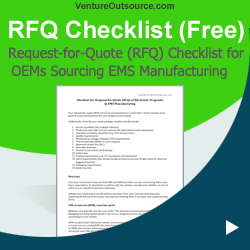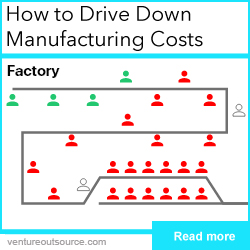To try and make sense of the constant marketing push for Watson I looked into Watson’s projects. I wanted to see and gauge the success stories, but finding them proved difficult.
So difficult I could not find one.
But what I could find were some contentious remarks and reports of large, cost overruns and significant project delays.
Digging deeper, I found some Watson projects were set up in a classic consulting structure. Perhaps for strategic purposes, or simply because the client wanted to hedge their bets and have, or get, backup in place. Or preserve political capital for a later battle.
Applying some basic critical thinking its apparent artificial intelligence (A.I.) is difficult to not only design, but A.I. is also difficult to deploy (implement).
Watson today. What is it, really?
Beyond playing Jeopardy, the continuous drawn-out hype, and the commercial spots of robots playing cards, Watson is a mixed set of services, hardware and consulting.
IBM launched Bluemix (2014) and Bluemix Local (2015) a cloud-foundry-based platform spanning areas like big data, Watson, analytics, integration, DevOps, security, and IoT. Bluemix Local is the Company’s platform-as-a-service (PaaS) for its Bluemix cloud app development platform that enables companies to build and run cloud apps behind their internal firewalls.
It would seem fitting IBM wants to bolster there consulting revenue and having some mature commodity tools for machine learning allows the ability to design and deliver for their clients. Like Microsoft or Google.
If Watson innovation has peaked, and IBM cannot
do any more acquisitions and write off synergies,
I predict within the next four quarters if IBM does
not see any growth in Watson IBM will make an offer
for PwC, or another domestic player.
However, having third-party consultancies involved in projects seems to only further burden some of the politicking organizational transformation deep dives would do better without when trying to squeeze in new technology.
What I found
I. Expert Advisor Project
Unable to find any Watson manufacturing success that saved money I looked at services and found the M.D. Anderson Cancer Center Oncology Expert Advisor Project which I referenced above.
The Expert Advisor Project is a good example of a Watson implementation where little was accomplished. And because Watson is not a platform and requires extensive consulting services, costs quickly got out of hand. Partly due to IBM’s expensive billing practices combined with the third party integrator (PwC was chosen for this project). And because of late, or lack of, execution by University of Texas (client).
The Expert Advisor Project had 12 extensions. This is a lot, especially for a public-facing program.
RELATED
 |
How corporate materials commodities strategy differentiates and transforms manufacturing |
I’d be curious to know when was PwC pulled in? At project onset or in the middle when the wheels started to come off?
Why was PwC given an integral part of the Watson integration when it should have been given to a data science level expert to improve both project and outcome quality? Why would the largest consultancy in the world outsource this?
SEE ALSO
Effective RFQ for EMS manufacturing programs
How to compare supply chains for Flex, Jabil, Sanmina, and Celestica
But because of IBM’s bad choices for project planning, offloading key areas to outsiders, it can take considerable time to find out where the buck stops when fingers start pointing.
The Watson Expert Advisor Project at University of Texas was so poorly managed and deadlines were pushed out so many times, and Watson implementation consulting fees racked up so much in additional costs, and project quality was so low the university assigned a committee (and spent more money) to find answers.
The resulting document of record: The University of Texas System Administration Special Review of Procurement Procedures Related to the M.D. Anderson Cancer Center Oncology Expert Advisor Project.
II. Harrow Council Project
IBM deployed Watson in their Watson Care Manager to control scheduling, develop personalized care plans, manage budgets, select healthcare providers and enable care.
Again, digging through this business use case study all I could find were non cost center-based, soft savings. Essentially, based on sales of future value.
Scheduling was the closest skill, or activity, I could find Watson relating to actual manufacturing, or supply chain management. Everything else related to Watson manufacturing I could find speaks to trends, or Industry 4.0, or cognitive process, connected manufacturing, and other keywords.
“[W]e are one of the [EMS provider] companies who have worked with IBM. We had to find our own way because frankly, IBM over sold and overpriced Watson. Most of the folks I’ve worked on the project with at IBM have moved on to China firms like Alibaba and Baidu.”
I did not find savings
IBM spends a ton of money marketing Watson and AI-powered manufacturing. And for good reason, I could not find any verifiable proof of KPIs stating Watson saved clients money, or improved their ROA/ROE.
A.I. IN MANUFACTURING
Artificial intelligence exceeding EMS manufacturing industry expectations
Artificial intelligence transcends manufacturing
I know manufacturing supply chains and reading through the marketing layers covering IBM’s claim Watson can reduce manufacturing downtime and improve manufacturing quality, I’m intrigued to learn Watson’s only real accomplishment is helping clients through machine learning and artificial intelligence to help clients make sense of data.
I want to know how can Watson save me money and free up working capital in my factory?
How can Watson help drive better performance of indirect labor in terms of accuracy, timeliness and responsiveness, and productivity execution?
I cannot locate one instance where Watson implementation improved a client’s ROA/ROE as a direct result of a Watson project implementation.
Not one.
Can anybody reading this point me to one Watson manufacturing implementation where the client saved money? Can you show me any Watson implementation, in manufacturing (or any industry) where Watson can be traced directly attributable to saving the client money? (IBM has since launched IBM watsonx.ai)
CEOs want to know what are my out of pocket, OpEx savings?
Regarding manufacturing downtime reductions and increasing manufacturing product quality, numerous manufacturing execution systems (MES) already accomplish this. (For more on MES, with research and specific examples, and how A.I. can directly reduce costs and free up working capital in manufacturing supply chains click here)
Jumping Watson ship
Watson jumped onto the global stage in 2011 playing and winning Jeopardy. But that was not what it seemed. Jeopardy should have created a nice bump in shareholder value and a business model should have been built around their cognitive strategy then but it wasn’t. Instead, marketing kept having to push more claims.
For nearly ten years, IBM continues to push Watson but it seems no one is buying. I suspect this is due to extremely high implementation costs combined with Watson not being attributable to saving money.
How can Watson save me money and free up
working capital in my factory? I cannot locate
one instance where Watson implementation
improved a client’s ROA/ROE as a direct
result of a Watson project implementation.
How do CIOs justify the expense of a Watson implementation that relies on little accountability into the project that is also heavily skewed to driving consulting fee revenue for IBM and third-party integrators but cannot be directly tied to ROA/ROE savings?
In 2016 Watson lost a key researcher to Accenture. Accenture is focused on automating passing the CPA exam. You can bet dollars to donuts if/when Accenture does accomplish this, Accenture marketing will take a similar approach IBM did promoting Watson and Jeopardy.
SEE ALSO
How to build costing modelers for contract manufacturing pricing negotiations
Like IBM and PwC, Accenture sells consulting services.
Whether its artificial intelligence used for manufacturing, healthcare or back offices, A.I. vendors today are marketing A.I. consulting services they want to sell to you.
There are two types of A.I. business models as I see today:
- A.I. application: incomplete technology stack, the IP making everything work is distributed and owned by multiple parties, requires lots of consulting fees. Numerous project success risk variables in this model.
- A.I. solution: comprehensive technology stack, IP is vendor-owned and delivered, complet platform easily integrates. Lower risk profile, but often is frankenware
So many questions, yet no answers
Watson projects are extremely complex with a lot of moving parts. And, at the rates IBM charges clients it would seem a global powerhouse of their size could muster the insights to choose battles more wisely.
There’s been a noticeable decrease in IBM’s M&A activity to build out their capabilities supporting Watson. Going back just a few years, we see some of IBM’s acquisitions below:
2015: 13 acquisitions
2016: 11 acquisitions
2017: 3 acquisitions
2018: 2 acquisition (Armanta, Oniqua)
Is this a correlation between the possible demise of Watson’s relevance?
What has been the outcome from IBM iX 2017 acquisition of Vivant Digital business? Did this not integrate well or enhance capabilities as they hoped?
It was assumed Vivant would help the Watson tentpole become a viable revenue stream through their assist clients with ‘digital’ Transformation. Assuming the Vivant acquisition gave them the shot in the arm they needed it did not seem to be in time for the project(s) above.
Are there no more viable acquisitions? Where does IBM go if they cannot go upstream?
If Watson innovation has peaked, and IBM cannot do any more acquisitions and write off synergies, I predict within the next four quarters if IBM does not see any growth in Watson IBM will make an offer for PwC, or another domestic player.
PwC is focused on management consulting/finance and they usually report to the [client’s] board. A domestic acquisition will not only close faster, but having acquired a management consulting firm allows IBM to then run flight cover over future Watson projects outside the classic consulting structure. But none of this helps Watson’s roadmap, and PwC is like most other large consulting firms: too many layers of supervision on top of more supervision with engagement managers, partners, and a director of client services – all needing to sign-off/triangulate data and communications and reports/findings between the client and IBM.
IBM is known worldwide for some amazing best practices and the company is innovative. But there remains a problem with Watson and there seems to be nothing noteworthy in the pipeline.
Sources
The University of Texas System Administration Special Review of Procurement Procedures Related to the M.D. Anderson Cancer Center Oncology Expert Advisor Project, University of Texas System Audit Office (PDF), November 2016 to January 2017
Watson and AI-powered manufacturing dominate 2018, IBM Internet of Things blog
https://www.ibm.com/internet-of-things/industries/iot-manufacturing
https://www.computerworlduk.com/galleries/it-vendors/innovative-ways-companies-are-using-ibm-watson-3585847/
https://www.crunchbase.com/organization/ibm/acquisitions/acquisitions_list
https://en.wikipedia.org/wiki/List_of_mergers_and_acquisitions_by_IBM
https://www.foxbusiness.com/features/ibm-watson-health-slashes-us-workforce-after-acquisitions
http://www.harrow.gov.uk/news/article/397/ibm_and_harrow_council_to_bring_watson_care_manager_to_individuals_in_the_uk
Harrow Council, Reducing costs and empowering citizens with help from IBM Watson Health, IBM (PDF), 2018
Get your list of EMS manufacturers (Its free)
Save time and money. Find quality EMS manufacturers. Fast. Venture Outsource has a massive, global database of contract electronic design and manufacturing capabilities. Speak with a Provider Advisor.
“Was able to very quickly find details on the important elements of setting up EMS and ODM partnerships, talked with an advisor for personalized info on quality providers matching our requirements while getting up to speed quickly about the industry and connect with key staff from like-minded companies and potential partners. Great resource.”
— Jeff Treuhaft, Sr. Vice President, Fusion-IO
Advisors tell you matches we find for your needs, answer your questions and, can share EMS industry knowledge specific to your industries and markets.





























